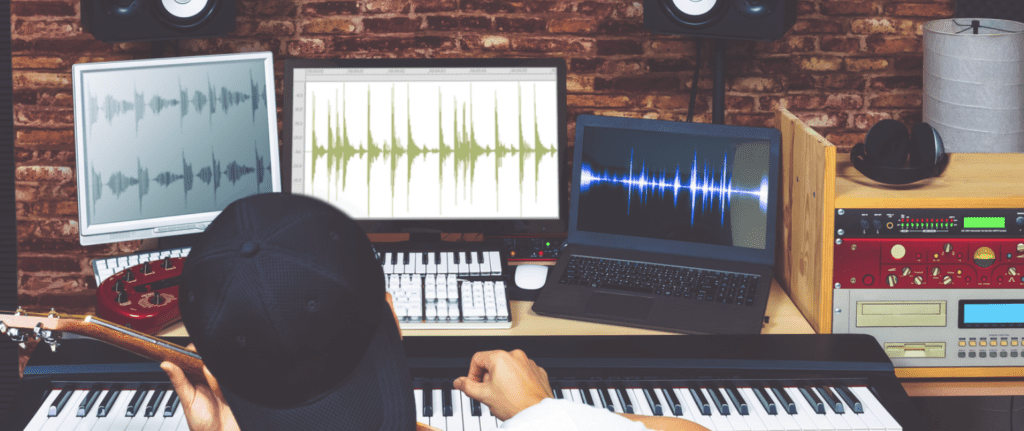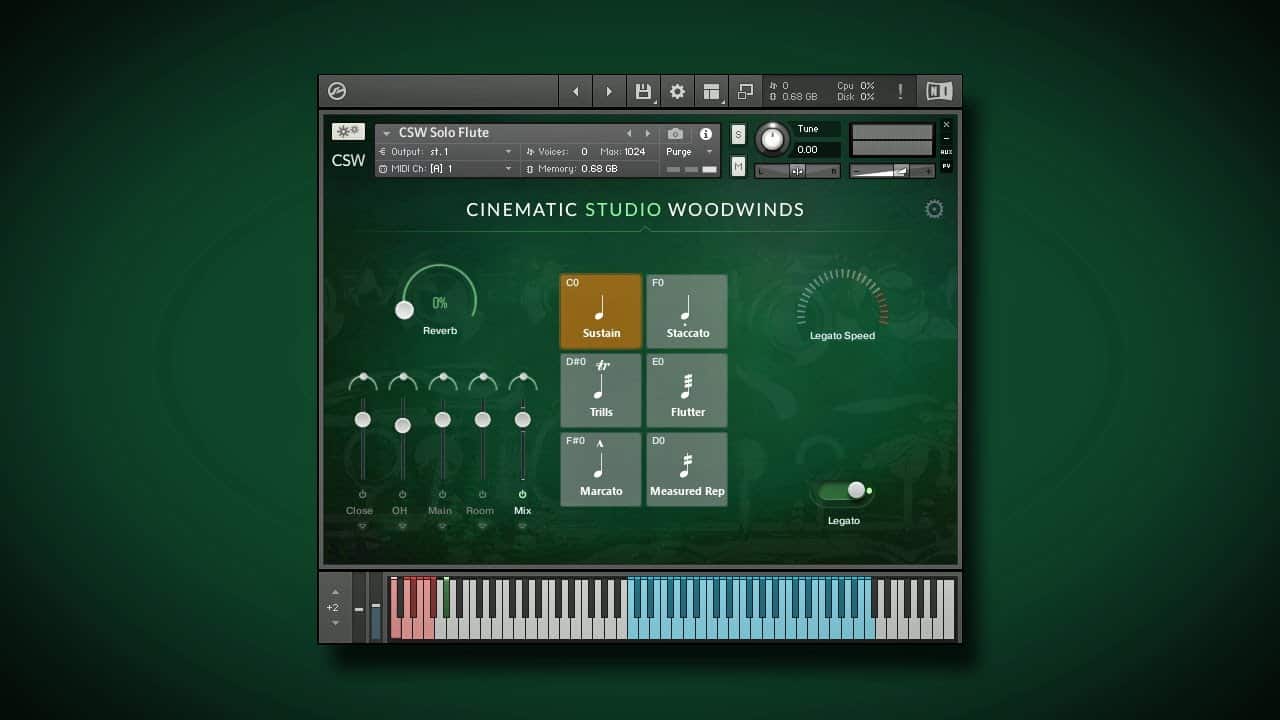How Much to Charge for Film Score?
As a film composer, one of the most important questions you’ll need to answer is how much to charge for your work. There are a few factors to consider when setting your fee, including the length of the score, the complexity of the music, and the budget of the film.
It’s also important to think about how much exposure you’re hoping to get from the project. For example, if you’re just starting out, you may be willing to work for a lower fee in order to get your name out there.
On the other hand, if you’re already an established composer, you can command a higher price. Ultimately, it’s up to you to decide what you’re worth and what you’re hoping to get from the project. With some careful consideration, you’ll be able to set a fair and competitive price for your film score.
Produce Music
Charging too little for your services when you compose or produce music will result in the client thinking you are inexperienced and that your music is not worth very much. On the other hand, if you charge too much, the client may feel like they are being ripped off and that they could get a better deal elsewhere.
The key is to find a happy medium – a price that is fair to both you and the client. When setting your rates, be sure to take into account the time and effort that will be required to compose/produce the music, as well as any other associated costs (studio time, equipment rental, etc.). Once you have settled on a reasonable rate, be confident in your pricing, and don’t be afraid to stick to your guns.
Remember, you are providing a valuable service and you should be compensated accordingly. If a client tries to haggle with you or lowball your rate, politely stand firm and explain why your music is worth what you are charging. By doing so, you will not only earn the respect of the client but also increase the chances of getting future work from them.
Ways to Get Paid
Let’s take some steps to get paid. Some composers charge a percentage. Generally, for composing music and music composition for a movie a composer may want a movie budget but will pay a proportion of that film. The composer is not required to pay a set percentage, but this can range anywhere between 5 and 15 percent of the movie budget. This is typically a very efficient way to start. It costs you in essence a minute to put together your composition. The average price is $50 to $1,000 per minute rate for finished music.
The two exceptions to this are for composers who have an agent or work on a flat per-project fee. The composer then negotiates how the music is used in the film and they may wish to reduce their contract amount based upon these negotiations.
For instance, you may want to negotiate that your movie budget is $75,000 but you are willing to accept $50,000. The music negotiation may be the only thing remaining to finalize the deal. Also, you can negotiate that your fee is non-refundable or contingent upon the film’s future success.

It should be noted that there is no standard price for each minute of music because it varies between each film and each composer. However, the risk of negotiation is that you may end up losing a potential client because it was not what they expected and felt your fee did not reflect their budget range requirements.
Generally, these types of negotiations should be done after you have already composed music for the film. Then you will know how much time it took for you to compose or produce music.
Keep in mind that whenever a youngster has a laptop, he or she is making music. With the support of AI, those soon-to-be young adults will be making money with finished music compositions for the short film without the need for a real recording studio. The most important aspect is that the industry is changing, the “new normal music director” composes a finished product with a smaller percentage of the overall budget spent than normally.

If you are negotiating compositions, then there will be no additional costs to you for creating or playing them in front of an audience. You will have to negotiate who pays your performance fees and how many performances you will give.
Music Composer and Music Director
Composers write and arrange original music in a variety of musical styles. Music directors, also called conductors, lead orchestras and other musical groups during performances and recording sessions.
Conductors typically have extensive music education and training in conducting and orchestration. In addition to leading rehearsals and performances, they may also choose the pieces that will be performed, select soloists, and choose the tempos for each piece.
Music directors typically have a deep understanding of music theory and composition, which allows them to bring out the full potential of a piece of music. While some composers are also music directors, many choose to focus solely on composing. Those who do conduct usually have a passion for both composing and performing.
Business Skill a Composer Needs but Overlooks
Negotiating and managing costs are important skills for any film scorer. When it comes to negotiating, it is important to be able to effectively communicate your needs and expectations. In addition, you need to be able to manage your time and resources efficiently in order to stay within budget.
There are a number of different software programs that can help with this, but it is also important to have a good understanding of the business side of things. This includes knowing how to read contracts and work with other professionals in the industry. Having these skills will help you be successful in the film scoring industry.
How Much Should You Charge to Compose Original Music?
It’s definitely preferable to pay for music on an hourly basis. It works similarly to how freelance designers and producers charge. It’s based on hours and costs, just like any other freelancer. All elements of your trip, accommodation, recording studio upkeep and studio rental are taken into account.
Examine your own expenditure since it will likely vary from other individuals and regions, as well as countries and locations. According to certain reports, charging by the minute for music production is a method of obtaining free labor. This is not a good long-term strategy for a healthy business.
It’s also a good idea to avoid charging by the minute because it means you’re easily seen as an amateur. If you’re still in your early stages of music production and don’t yet have a following or a solid portfolio, this can be very damaging.
Especially if people catch on to what you’re doing, they may even begin boycotting your services. Additionally, if you’re a professional producer and songwriter who charges by the minute or by your weekly output, find new clients immediately.
There is currently no set standard for recording music on an hourly basis as it varies from artist to artist.
The Downside of Charging per Minute of Music (Not as Much Profit)
In the music industry, the trend has been to charge per minute of music. However, this pricing model has a number of drawbacks.
First of all, it can discourage customers from listening to long-form music. After all, why would someone pay for an hour-long album when they can just pick and choose their favorite songs à la carte? As a result, musicians may find themselves forced to release shorter albums or singles in order to remain profitable.
Additionally, the per-minute pricing model puts pressure on musicians to artificially inflate the length of their songs. In other words, they may add needless filler in order to increase the overall running time (and price) of their work.
Ultimately, this could lead to sub-par music being released in the hopes of turning a quick profit. For these reasons, it may be time for the music industry to rethink its current pricing model.
Most composers charge by the minute, with rates ranging from $50 to $1000 per minute of finished music. This allows them to provide a fair price for their services based on the amount of time and effort required to create the desired composition.
The Games Industry Is Bigger than The Film Industry
I recommend you not focus on movie scores. Make a larger picture and seek out game-related opportunities. The game and movie business is 1000x bigger than film now. This will increase opportunities for employment.
I’ve noticed that the film business is a little more “closed” and difficult to break into. The game industry is flourishing everywhere. From a bedroom-based operation to a major studio, from an independent concern. I hope these articles have been helpful in launching your career as a video music/audio game developer! Learn how to create music for games instead of focusing on the film score.

Most video game music composers are self-employed freelancers who work from their homes. Either alone or, if well-established and working on a bigger budget, in tandem with a staff of assistants. Studios frequently hold creative teams meetings at the workplace for composers, but the bulk of the work is done remotely.
Original Sound Can Help You Rise Above the Competition
The most interesting example is Swedish Ludwig Göransson (Ludwig has scored films such as Fruitvale Station, the Rocky franchise entries Creed and Creed II, Venom, Tenet, The Book of Boba Fett, and The Mandalorian).
It’s quite unique sound that comes from the noise. Ludvig records a wide array of live music in his studios for the most intimate sound possible. He has done this with the Trumpet, Piano, Flute and even Marimba. Then he records their sounds individually to make his own unique sound library.
Composing Music for Student Films
If you are writing music for student films then be careful of the clients’ budget. Bear in mind that most students don’t have much money to spend, but they will always try to get freebies from you because of their film school connection. Does the client have a low budget? lower your price!
Other factors include whether it’s a short, medium, or long film. What the subject is about and how big the audience is. The opportunity is that building a network with a student can be a network link to an established filmmaker or director in the future.
Price Your Original Composing Services
It gets me so much of a response it seems impossible as all experiences and backgrounds differ greatly from one another. Game music composers with experience and credit lists tend to charge more than those who don’t. It is a good idea for new composers to work with indie films and students because the market is big enough.
What about working with a smaller production company? This will usually give you a lower rate, but it can be a stepping stone to getting onto small projects or bigger projects. I would suggest taking a look at other indie composers to see what they are charging.
The price also depends on how good your product is. It must be high quality and professional because if it isn’t you won’t get future work from the client. Talk about any revisions during meetings for future projects and negotiate a price that covers any changes required by the client between projects.
You must be able to get an agreement in writing. Email, phone conversations, and verbal agreements are not recommended for the beginner composer because they can lead to trouble down the line.
If you want to earn more then you need a bigger network of clients that includes feature film companies and big-budget TV shows such as Breaking Bad or The Walking Dead.
Establishing a Price is the First Step to Getting Paid for Your Compositions
Typically they’ll say, “Music and SFX are free!” or worse yet, they’ll tell you what rate they will pay. The most common response I get from clients is this: “We don’t have money but we can credit you”. And my response is “No follow-up work, no credit”.
The better an individual’s experience and demand increase, the greater the amount charged for music and time.

Price Will Obviously Rise with Experience
As a composer, more experience is gained and the more admired the composition, the better it becomes. The costs of production equipment (studio, instruments, samples) also rise dramatically with this progression.
If you compare different composers’ resumes within the same category, you’ll find that each composer has their own unique voice. This is why there are so many famous film composers who receive more work than others who are lesser-known. The audience hears one of their favorites and becomes a fan.
The best way to do it is to have a good “package” deal with the production company, director, editor etc., where you receive a flat rate that covers both music and sound effects or just sound design. You would then send off an invoice.
Film Budget for Music Production and Score
A film’s budget is a vital element in the production process, and the music budget is no exception. Soundtracks can make or break a movie, so it’s important to allocate enough funds to ensure a quality score. The music budget should cover the cost of composers, musicians, and recording time.
In addition, it’s important to factor in the cost of licensing existing songs or acquiring the rights to use copyrighted material. By taking all of these factors into account, filmmakers can create a well-rounded musical experience that enhances the film without breaking the bank.
Ask directors for their budget. You can also take a look at the website of other indie composers in order to get an idea of what they are charging. Calculate how much effort you need to write music.
Does a score take more than four weeks? Set an hourly fee and make a calculation. Make sure the clauses contain maximum revision and so forth. Or whoever wants to make a change has to pay the additional production time or he might pay less for the project first.
It’s best not to start bidding low and slowly increase the costs as you gain more experience in the process. Eventually, you’ll reach the appropriate specific rate. Be mindful that your costs could increase for example with higher fees for studio rent, engineering, recording equipment, etc.
Selling Your Original Songs to A Music Licensing Company
Movies are licensed through music licensing agencies. So people can also get musical materials in a vast collection. You could work with a licensing library as a start in your career. However, a sad part about a licensee company is their branding will never grow as they use their licensee names in films – games credits.
You could also contact a film production company directly, giving them a demo of your music. Once you have established that high quality is the benchmark for all customers then it is likely that they will come back to you for more work in future projects.
You can then negotiate a price that combines several smaller projects into one single job if their budget allows.
The first step should always be to contact clients, whether they’ve reached out to you or not. You can then introduce yourself and let them know that you’re interested in working with them and discussing their upcoming film. It’s best for phone calls because it allows your personality and professionalism to shine through.
Another great option is entering a scoring competition. Awards are given to the best music piece in each category, which can help get your name out there.
Film Scores in Your Portfolio – Grow Your Personal Brand
A film score is an original music written specifically to accompany a film. The term usually refers to the music used in the background, although it can also include the music used in dramatic scenes or montages. A good film score enhances the emotional impact of a scene and helps to create a sense of atmosphere. It can also be used to convey information about a character or a location.
For example, a cheerful music cue might indicate that a character is happy, while a more somber cue might suggest that a scene takes place in a dark and dangerous place. Including film scores in your portfolio is a great way to show off your range as a composer and demonstrate your ability to enhance the emotional power of a scene.
In today’s crowded marketplace, personal branding is essential for any composer who wants to stand out from the crowd. By including film scores in your portfolio, you can help to grow your personal brand and attract the attention of potential clients.
Check with the teacher to verify that your student producer understands you may use the final product for commercial purposes. The video is designed for your portfolio site, YouTube, and social networking marketing. To get a competitive edge in the game and film business, you must establish your company brand immediately.
All this is to say that when you’re creating a portfolio, it should include items that will benefit the company. If the company is in need of work in different styles or genres, your portfolio should demonstrate versatility and flexibility.
The best way to do this is by garnering impressive samples from the industry. Asking clients for these promotional tools will ultimately help you prove that you’re capable of working within their brand.
As for licensing libraries, I would recommend contacting the company directly to find out what you need to do in order to begin putting your music on their site. They may provide instructions on how to submit tracks or they might require a specific demo. Try sending the library’s representative a link to your website or another portfolio site, as well as a few songs that you think best demonstrate your talents.
Understanding the industry is the first step toward making it in this business and becoming successful. Keep reading through forums and articles where people who work within these industries share their advice and insight.
This way, you can learn from their experiences and immediately apply this information to your career. Using these tips will help you create an enticing portfolio that promotes your brand while offering the best samples of your work.
Never Compose Original Music for Free
Any creative professional will tell you that their work is worth money. After all, it takes time, effort, and skill to compose original music.
So why should composers work for free? The simple answer is: that they shouldn’t. When a composer creates a new piece of music, they are investing their time and energy into the project. And just like any other investment, they should be compensated for their work.
Of course, there are some who argue that composers should be happy to have their music heard by others. But the fact is that most people don’t really listen to music – they just consume it passively in the background. And even if someone does appreciate a piece of music, that doesn’t mean they’ll be willing to pay for it. In today’s world, music has become something of a commodity, and it’s all too easy for people to find ways to get it for free.
As a result, composers who give away their music are essentially devaluing their own work. If we want to see original music thrive, we need to start paying composers for their creations. Otherwise, we’re only setting the stage for homogeny and mediocrity.
How Much Should I Charge for Scoring a Film?
When you make a song for a movie, you may charge a percentage of the film’s budget. Depending on the production costs of the film, the composer’s fee can range from 5 to 15 percent. This is in addition to the fees for composing and recording.
Clients should be aware of the work you’ve done and the service you’re offering. It’s best to include your resume with a cover letter that explains your past projects as well as how much it would cost for future ones.
Additionally, you can let clients know that they will be included in the process by adding them as a producer or executive producer on IMDb.com, a film and television networking site. This should be noted on the resume as well as your website or social media accounts.
Whether you’re a filmmaker looking for original music to score your next project, or an artist navigating the sometimes murky waters of licensing opportunities, getting paid fairly is essential to building a sustainable career.
How Much Should I Charge for Custom Music
Film scores are an important part of the movie-watching experience, setting the tone and atmosphere for each scene. A well-chosen piece of music can make a big impact, so it’s no wonder that filmmakers are often willing to pay good money for custom music.
But how much should you charge for a custom film score? There are a few factors to consider. First, think about the length of the score and the number of tracks required.
A feature-length film will need more music than a short film, so you’ll need to adjust your price accordingly. Next, consider the level of complexity involved. If you’re creating an epic orchestral score, you’ll be able to charge more than if you’re creating a simple piano melody. Finally, don’t forget to factor in your own time and expertise.
If you’re an experienced composer with a long list of credits, you can command a higher fee than if you’re just starting out. Ultimately, there’s no single right answer when it comes to pricing a custom film score. But by taking the time to consider all of the factors involved, you can arrive at a fair price that meets the needs of both parties.
New Music Composers – Do Film Scorers Get Royalties?
In most cases, you will be paid a flat fee for composing and recording the music for a film. In some cases, major producers own the copyright of original music for film and TV series in a “work for hire” contract, but composers maintain financial interests in the copyright and share a portion of the royalties called a public performance fee.
In some cases, major producers own copyright for original music in a “work for hire” contract, but composers maintain financial interests in the copyright and share a portion of the royalties called a public performance fee.
Normally, a composer hires a music publisher to market his original film score and negotiate usage rights on the song. In these cases, the commission is usually around 10%.
Filmmakers are often under pressure to keep their production costs low by cutting corners wherever possible. You may be approached with an offer that’s far below industry standard, but don’t hesitate to negotiate a fair price for your work.
Cost to Hire a Film Composer
Music Budget – Cost A filmmaker producing low-budget films may use lesser renowned writers for $25,000 or one without feature credits for $10,000. However, if you have a name in the industry or your work is featured in a well-known film, then the cost may jump to $50,000 for a 5-minute cue. For independent studios and small production companies, this specific rate will be even higher because they lack the funds to compete with major studios.
As a composer, you have a few options when it comes to pricing your work. One option is to charge an hourly rate. This could be a set amount per hour, or you could give a rough estimate of how many hours it would take to write the music and allow for a little negotiation. Another option is to charge a flat rate per minute of music.
This could be based on the number of instruments involved or some other factor. There are pros and cons to both approaches. Charging an hourly rate could mean that you end up selling yourself short, but it could also be less risky than charging a flat rate. If you charge a flat rate per minute of music, you run the risk of not being able to complete the work in the time allotted, which could leave you feeling disappointed or upset. Ultimately, it’s up to you to decide which pricing approach makes the most sense for your business.
Conclusion
When it comes to scoring a film, there are a few things to take into consideration. Film scorers can charge a percentage of the film’s budget or a flat fee for composing and recording the music. Additionally, they can include clients in the process by adding them as a producer or executive producer on IMDb.com. Royalties may also be awarded in some cases, depending on the contract. It’s important to negotiate a fair price for your work and know what to expect when working with clients.
Film Scorers Charge Percentage of the Film’s Budget or Flat Fee
- When you make a song for a movie, you may charge a percentage of the film’s budget. Depending on the production costs of the film, the composer’s fee can range from 5 to 15 percent. This is in addition to the fees for composing and recording.
- When you make a song for a movie, you can charge a flat fee for composing and recording the music. Clients should be aware of the work you’ve done and the service you’re offering. It’s best to include your resume with a cover letter that explains your past projects as well as how much it would cost for future ones. This information should be on your website or social media accounts as well.
Generally, there is no chance for royalties in film scoring unless you are hired by major producers with copyright to original music under the “work for hire” contract. Anyone can hire a composer to write and record an original score for their movie, so they tend to offer a flat fee for your services, and nothing more.
Some TV series do pay royalties though. For instance, if you write an opening theme song for a show like “American Horror Story”, you will receive royalty payments every time the episode is re-aired (aka syndication).
When it comes to scoring a film, there are a few things to take into consideration. Film scorers can charge a percentage of the film’s budget or a flat fee for composing and recording the music. Additionally, they can include clients in the process by adding them as an executive producer on IMDb.com. Royalties may also be awarded in some cases, depending on the contract.
Charge for Film Score FAQ
How Much Does It Cost to Hire a Film Composer?
The cost of hiring a film composer varies depending on the project. A composer may charge a percentage of the film’s budget, a flat fee, or royalties. It’s important to negotiate a fair price for your work and know what to expect when working with clients.
What Are the Royalties for Film Scores?
Royalties are payments made to the copyright holder of a work for the use of that work. In the case of film scores, royalties may be paid to the composer when the film is aired on television or released on DVD. Generally, royalties are not paid for films unless the composer is hired by major producers with copyright to original music.
Can I Include My Client as an Executive Producer on IMDb?
Yes, you can include your client as an executive producer on IMDb if they have contributed financially to the project. However, it’s important to note that this credit does not guarantee any payment or royalty from future use of the film.
How much do film scorers earn?
ile there is no one answer to this question, as earnings vary depending on experience, project and client, it is not uncommon for film scorers to earn between $500 and $5,000 per project. Some may even earn royalties in addition to their initial fee, though this is generally only the case for those working with major studios. It is always best to negotiate a fair price for your work before beginning any project.
What Are The Different Ways To Charge For A Film Score?
The three most common ways to charge for a film score are by percentage of the film’s budget, flat fee, or royalties. The method you choose will depend on the project, your experience, and the client. It is always best to negotiate a fair price for your work before beginning any project.
How do I get started in film scoring?
If you’re interested in getting started in film scoring, the first step is to create a demo reel of your work. This reel should be between two and five minutes long and showcase your ability to compose for different genres of film. Once you have a reel, you can start submitting it to directors and producers who are looking for new talent. You can also create a website or social media accounts to showcase your work and attract new clients.
How much should I charge to score a short film?
The cost of scoring a short film varies depending on the project. A composer may charge a percentage of the film’s budget, a flat fee, or royalties. It’s important to negotiate a fair price for your work and know what to expect when working with clients.
How much should i charge to score a feature film or large feature films?
When it comes to film scores, the sky is the limit. A big-budget studio release can easily cost upwards of a million dollars, while a lower-budget film might only set you back twenty thousand. It all depends on a variety of factors, including the composer’s reputation, the length and complexity of the score, and the size of the orchestra. If you’re working with a well-known composer, you can expect to pay top dollar. But if you’re willing to take a chance on a up-and-coming talent, you might be able to get the same level of quality for a fraction of the price. In the end, it all comes down to what you’re willing to spend.
How much does a film score cost?
The cost of a film composer can vary widely depending on the budget of the film, the composer’s fame, and the length of the score. For a lower-budget film, a composer might charge as little as $20,000, while for a big-budget studio release, the fee could be in excess of $1,000,000. The length of the score is also a factor to consider, as a longer score will obviously require more work. In addition, if the composer is well-known, their fee will be higher than that of a less famous composer. However, regardless of the cost, a good film score can really make or break a movie, so it is always worth investing in a quality composer.
Is film scoring a good career?
There is no one answer to this question, as it depends on what you’re looking for in a career. If you’re passionate about music and enjoy working on creative projects, then film scoring could be a great fit for you. However, if you’re looking for security and a steady income, then you might want to consider another field. Film scoring can be a very lucrative career, but it is also very competitive and often unpredictable. So if you’re up for the challenge, then go for it! Otherwise, you might want to consider another career path.
Do film scorers get royalties?
It depends on the project. Some composers charge a flat fee for their work, while others may receive royalties. It is always best to negotiate a fair price for your work before beginning any project.
What are some tips for charged film score?
Some helpful tips for charging for a film score include:
– Knowing your worth and what you bring to the table
– Doing your research on comparable projects
– Negotiating a fair price for your work
– Getting everything in writing before beginning the project
– Being willing to walk away if the client isn’t willing to pay what you’re worth.
If you keep these things in mind, you’ll be sure to get paid what you deserve for your hard work.
How much do score writers make?
There is no one answer to this question, as composers’ fees vary depending on the project. A big-budget studio release can easily cost upwards of a million dollars, while a lower-budget film might only set you back twenty thousand. It all depends on a variety of factors, including the composer’s reputation, the length and complexity of the score, and the size of the orchestra. If you’re working with a well-known composer, you can expect to pay top dollar. But if you’re willing to take a chance on a up-and-coming talent, you might be able to get the same level of quality for a fraction of the price. In the end, it all comes down to what you’re willing to spend.
How do I become a film scorer?
If you’re interested in becoming a film composer, there are a few things you’ll need to do. First, you’ll need to learn how to read and write music. Second, you should get some experience writing for different types of ensembles. And finally, you’ll need to build up a portfolio of your work. If you can do all of these things, then you’ll be well on your way to becoming a film composer.










